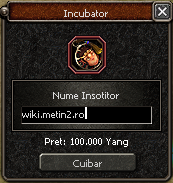Executor of a will sa
The executor must file various legal documents at the Probate Registry, including the original Will, the death certificate, and a statement of all assets and liabilities as at the date of death of the deceased person. Until probate is granted by the Supreme Court, the executor does not have the legal authority to take any further action in terms of administering the estate. To find out more about your responsibilities as an executor , read our guide and factsheet.
The guide gives you an introduction to being an executor , and the factsheet provides more detailed information. The person who died will normally have told you if you’re an executor. If a named executor would prefer not to be involve they can choose to ‘renounce’ (resign) from their duties, as long as they have not already done any administration work on the Estate beforehand.
Alternatively, a ‘Notice of Power Reserve’ can be served by the acting executor to confirm that the other named executors do not want to have an active role within the administration of. What is an executor of a will? Can an executor of a will abandon the role?

An executor is responsible for seeing that the terms of the will are carried out. Very generally, administering the estate is the process of identifying the contents of the estate, collecting them together and then distributing them as closely as possible in line with the deceased’s wishes in his or her. Being an executor of a Will can feel overwhelming for some people, but it doesn’t need to be.
Your main role as executor is to represent the person who has passed away and wrap up all of their personal, financial and legal affairs. If an executor has intermeddle six months has passed since the death, and a grant has not been taken, a citation may be issue forcing the executor to demonstrate why they should not be ordered to take a grant. The executor must provide notice to the creditors (persons or entities the deceased owed money to) in order to inform them of the death of the deceased.

If the executor continues to fail to. If you’re the executor or administrator of an estate you may also need to send information to HMRC for the ‘administration period’. The notice must be published in a local newspaper.
This is the time between the day after the death and the. Usually you would appoint more than one executor. You will need to supply written reasons for transfer (i.e. a statutory declaration or copy of the will and any correspondence from a lawyer), proof of identity, certificate of registration and. The role of executor is usually assigned to a close member of the family. Estate is simply a word that means the assets and debts of the deceased.
Given the nature of the assignment itself, the role can be quite a challenge—both mentally and emotionally. Many states allow the executor of an estate to receive compensation for his work on the estate. The monetary percentage the executor of a will receives in these states depends on the law of each particular state. Some states use a percentage amount set by law, while others allow the probate court to set the rate.
Excl VAT) of all the assets of an deceased estate. We frequently sit with a client to negotiate a better fee for them. Deceased Estate Admi. We are going to be looking at a variety of issues that include the duties of the executor , what an executor does, and administration process for the estate of the deceased.
The tasks involved can sometimes take months to complete, so think carefully before you agree to take on the role. One executor takes out the grant of probate without the others In most cases, all of the executors named would apply for grant of probate on an estate. However, one or more of the executors may apply by themselves subject to giving notice of the application to the other co-executors.
Comments
Post a Comment